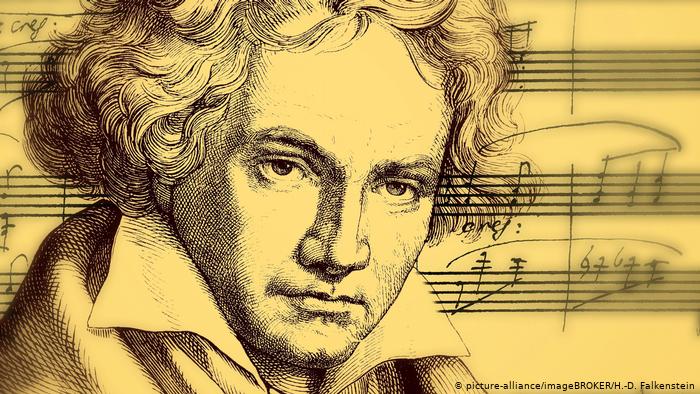
Beethoven’s Fifth Symphony: The truth about the ‘symphony of fate’
The beginning of Beethoven’s Fifth Symphony is known the world over, yet the opening motif is only four notes long. Music researchers have long wondered — is fate really knocking on the door at the start of this piece?
Da-Da-Da-DUM — hardly any succession of notes is as famous around the world as the one at the beginning of Ludwig van Beethoven’s Fifth Symphony.
Simply click here:
If Beethoven had been alive today, he would have become rich through royalties alone: mobile phone ringtones, musical arrangements of all styles, prints of his music on bags, cups and umbrellas. Not to mention the proceeds from the right to perform his works. For instance, at this year’s Beethovenfest in Bonn, the composer’s Fifth Symphony can be heard in both its original and in modern arrangements.
Why a symphony of destiny?
The Symphony No. 5 in C minor from 1808 has gone down in music history as the Symphony of Fate. It is a central work for the Beethovenfest, which this year has as its motto “Fate.” The fact that the symphony bears this epithet is above all due to Beethoven’s secretary and biographer, Anton Schindler. When he asked Beethoven about the opening motif of the Fifth Symphony, the composer is said to have replied: “This is the sound of fate knocking at the door.”
For Jens Dufner, research assistant at the Beethoven-Haus in Bonn, this concept of fate is problematic: “Anton Schindler was a shady figure,” said Dufner. Although he was indeed a contemporary of the time who should generally be taken seriously, Dufner thinks Schindler presented his relationship to Beethoven in a different way than it really was. “Over the course of the years, he made ever greater attempts to portray his closeness to Beethoven and to embellish more and more things.”
Nine years before the publication of the famous quote, Schindler had written an article about Beethoven’s Fifth and his own listening experience, in which he said it felt this music was about the struggle of a hero with fate. “The alleged Beethoven quote comes much later,” said Dufner. “That makes us suspicious.” Musicologist Michael Stuck-Schloen suspects Beethoven — even if the quote really came from him — only wanted to get rid of his intrusive biographer with this short answer
